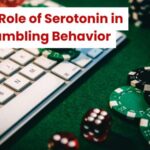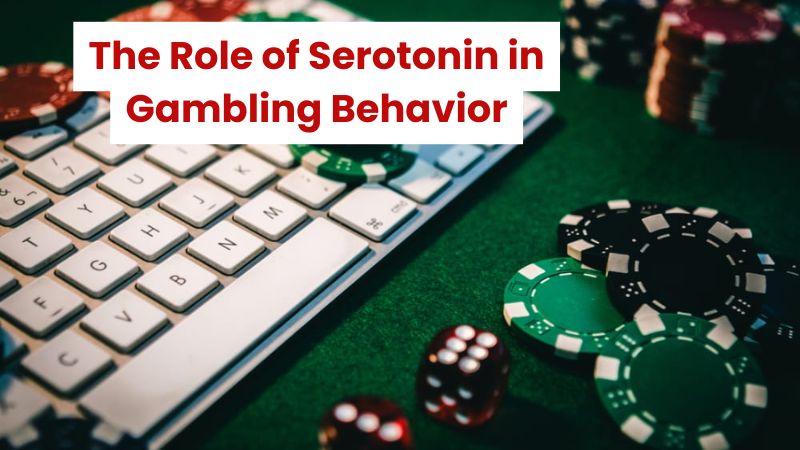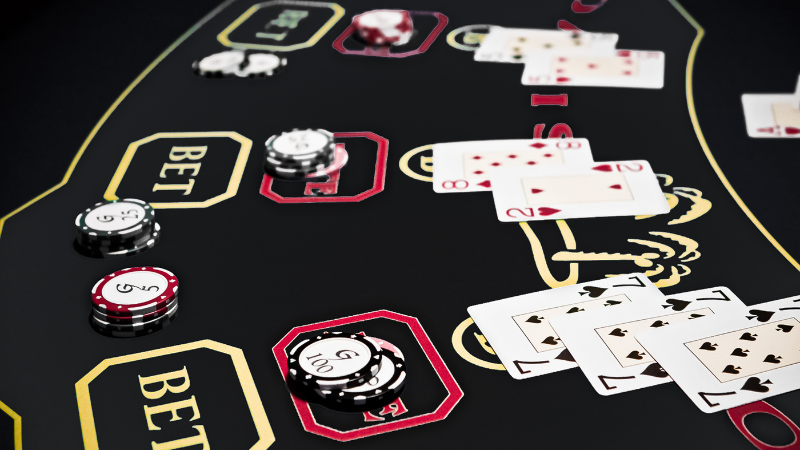Gambling is a complex behavior that can be influenced by various factors, both psychological and physiological. Among these, serotonin, a neurotransmitter that plays a crucial role in regulating mood, emotions, and behaviors, is often linked to gambling tendencies. Understanding the connection between serotonin and gambling can provide valuable insights into why people gamble and how to manage compulsive gambling behaviors.
What is Serotonin?
Serotonin is a chemical produced in the brain that helps regulate various bodily functions, including mood, appetite, sleep, and digestion. Often referred to as the “feel-good” neurotransmitter, serotonin plays a key role in influencing our emotions and behaviors. Its balance is crucial for emotional well-being, and an imbalance in serotonin levels can lead to various psychological conditions, including depression, anxiety, and addiction.
Serotonin and the Brain’s Reward System
The brain’s reward system is responsible for making us feel pleasure or satisfaction when we engage in rewarding activities. Serotonin is a key player in this system, working alongside other neurotransmitters like dopamine. When you engage in activities like eating, exercising, or gambling, serotonin helps reinforce the positive feelings that make you want to repeat the behavior.
In the context of gambling, serotonin plays a significant role in the brain’s reward pathway. When an individual wins or experiences a potential win while gambling, serotonin levels are released, creating feelings of pleasure and excitement. This can lead to the reinforcement of the gambling behavior, encouraging individuals to continue gambling in search of those rewarding feelings.
How Serotonin Affects Gambling Behavior
Serotonin levels can have a profound impact on how we approach gambling. Low serotonin levels are often associated with impulsive behaviors, mood swings, and increased risk-taking. This can make individuals more likely to gamble excessively, seeking the emotional high associated with the activity. On the other hand, high serotonin levels may help to reduce impulsivity and risk-taking behavior, potentially leading to more controlled gambling patterns.
Research suggests that individuals with lower serotonin levels may be more vulnerable to developing gambling problems. Their reduced ability to regulate emotions and impulses can make it harder to stop once they begin gambling. In contrast, individuals with balanced serotonin levels may be better equipped to manage their gambling habits and avoid compulsive behavior.
Serotonin and Impulsivity in Gambling
Impulsivity is a key characteristic of problem gambling. People with high levels of impulsivity are more likely to engage in gambling without fully considering the consequences, making them more prone to developing gambling addictions. Serotonin plays a central role in regulating impulsivity. Low serotonin levels have been linked to increased impulsive behaviors, which can manifest as an inability to control gambling urges.
When serotonin levels are low, the brain struggles to regulate impulses effectively. This can lead individuals to chase losses, gamble with excessive amounts of money, or continue gambling even when it negatively impacts their life. In this sense, serotonin can be seen as a natural regulator that helps individuals avoid risky behaviors, including excessive gambling.
The Link Between Serotonin and Gambling Addiction
Gambling addiction, also known as gambling disorder, is a condition in which an individual becomes compulsively involved in gambling activities, despite the negative consequences. The role of serotonin in gambling addiction is critical. Research indicates that individuals with gambling disorders often have abnormalities in serotonin functioning.
In many cases, gambling addiction is linked to the brain’s inability to regulate serotonin effectively. This can result in an increased need for stimulation and risk-taking behaviors, making it harder for individuals to stop gambling. The release of serotonin during gambling wins reinforces the addictive cycle, creating a feedback loop that encourages further gambling despite negative outcomes.
Treatment Strategies for Serotonin Imbalance in Gambling
For individuals struggling with gambling addiction, addressing serotonin imbalances may be an important aspect of treatment. Various approaches can help regulate serotonin levels and reduce the impact of gambling behavior. These treatments include therapy, medication, and lifestyle changes.
Cognitive-behavioral therapy (CBT) is one of the most common treatments for gambling addiction. CBT helps individuals identify and change the thoughts and behaviors that contribute to their gambling problem. By addressing the underlying emotional and psychological factors, CBT can help individuals develop healthier coping strategies and reduce the influence of serotonin-driven impulses.
Medications such as selective serotonin reuptake inhibitors (SSRIs) may also be used to regulate serotonin levels in individuals with gambling disorders. SSRIs work by increasing the availability of serotonin in the brain, which can help alleviate some of the emotional dysregulation associated with gambling addiction. These medications, when combined with therapy, can provide a comprehensive approach to treating gambling problems.
Preventing Gambling Addiction Through Serotonin Regulation
Preventing gambling addiction involves addressing serotonin imbalances before they lead to problematic behavior. Maintaining a healthy lifestyle that promotes balanced serotonin levels can reduce the likelihood of developing gambling issues. Regular physical activity, a balanced diet, and adequate sleep are all essential for maintaining optimal serotonin levels.
Additionally, engaging in activities that promote positive emotional experiences, such as socializing, pursuing hobbies, and practicing mindfulness, can help regulate serotonin levels. By managing stress and promoting emotional well-being, individuals can reduce their susceptibility to impulsive behaviors, including gambling.
The Role of Genetics in Serotonin and Gambling
Genetics also play a significant role in how serotonin impacts gambling behavior. Some individuals may be genetically predisposed to having lower serotonin levels, which can make them more vulnerable to developing gambling problems. This genetic factor, combined with environmental influences such as stress or trauma, can create a perfect storm for compulsive gambling behavior.
Research into the genetic factors of gambling addiction is still ongoing. However, scientists believe that understanding the genetic basis of serotonin regulation could lead to more personalized and effective treatments for individuals struggling with gambling disorders.
Conclusion
The relationship between serotonin and gambling behavior is complex but crucial in understanding why some individuals are more prone to gambling addiction than others. Serotonin’s role in regulating mood, emotions, and impulsivity directly influences how people approach gambling. When serotonin levels are balanced, individuals are more likely to engage in controlled, responsible gambling. However, when serotonin levels are disrupted, the brain’s ability to regulate impulses is compromised, leading to higher risk-taking and addictive behaviors.
By addressing serotonin imbalances through therapy, medication, and lifestyle changes, individuals can reduce their gambling urges and regain control over their behaviors. Prevention strategies that focus on maintaining healthy serotonin levels can also help reduce the risk of developing gambling problems. Ultimately, understanding serotonin’s role in gambling can provide valuable insights into both preventing and treating gambling addiction.











